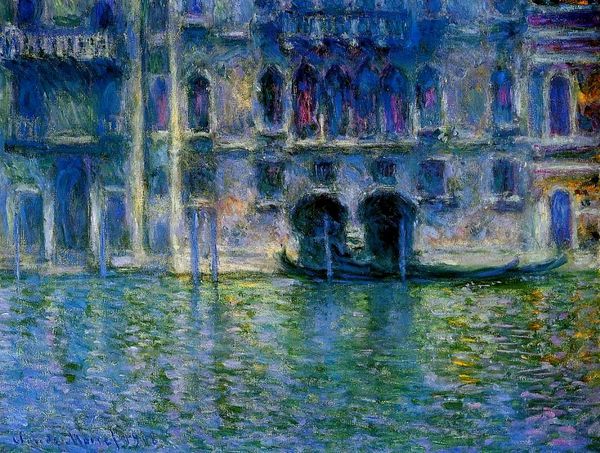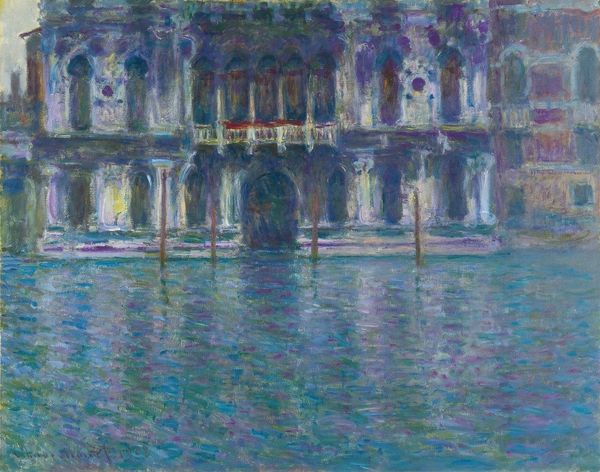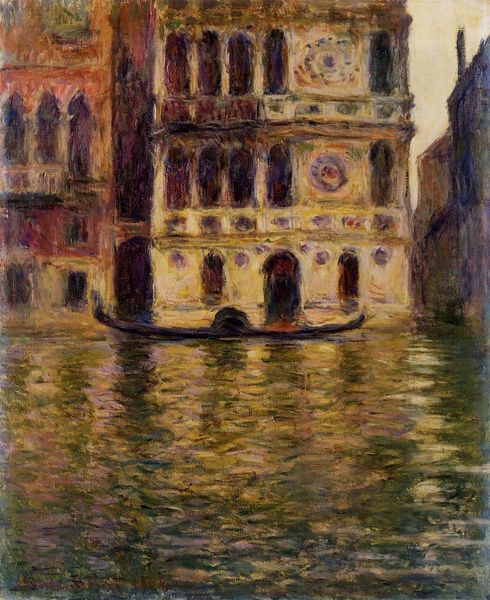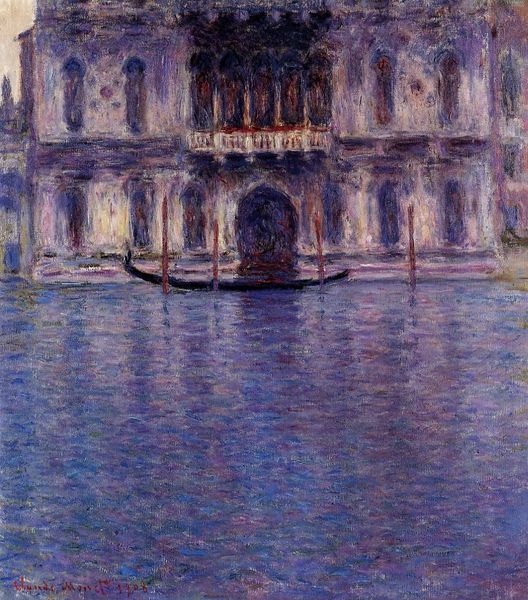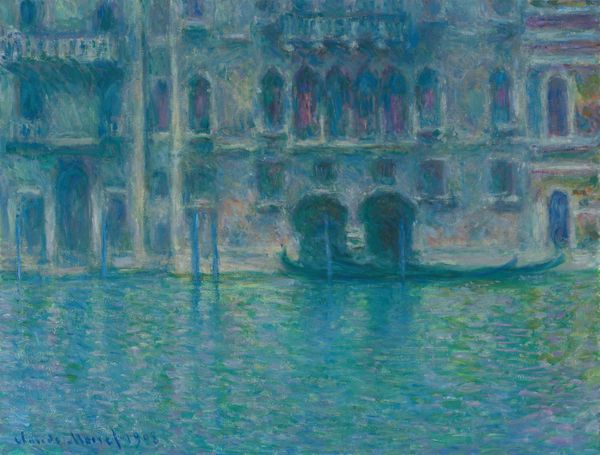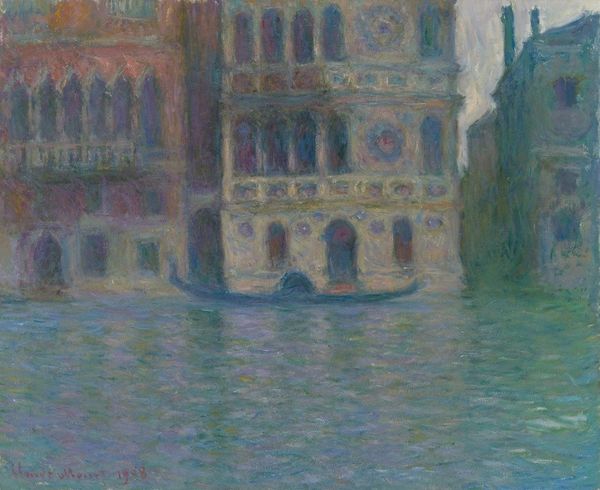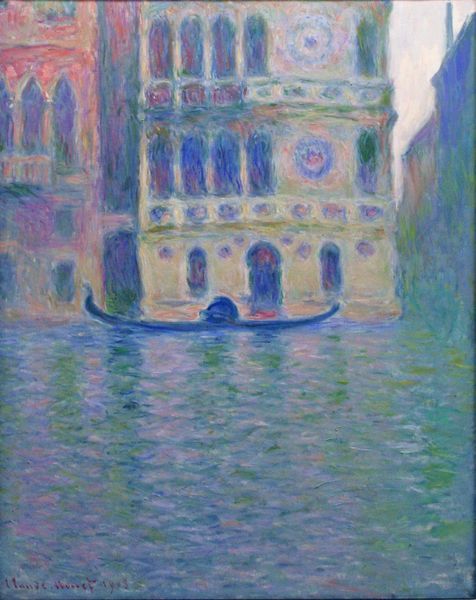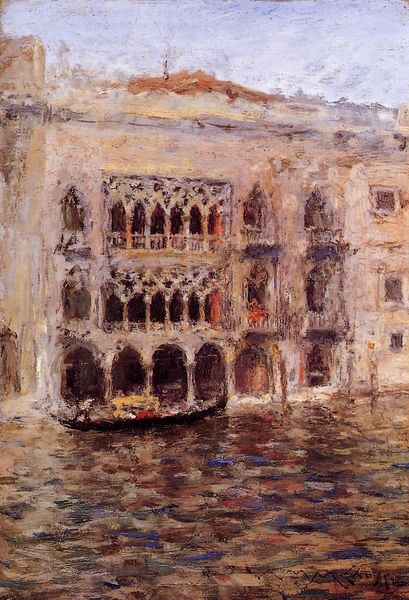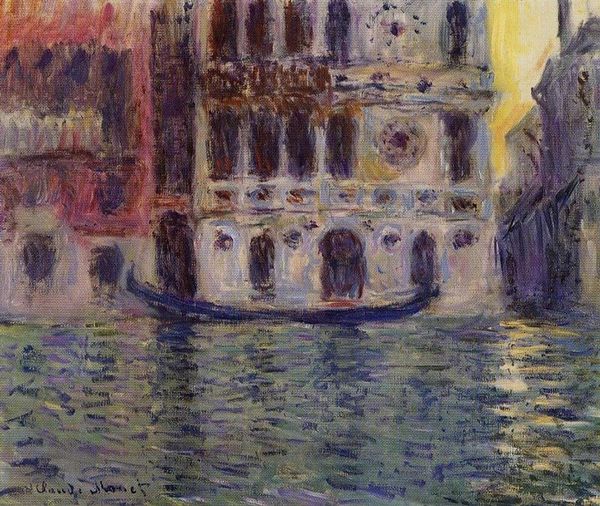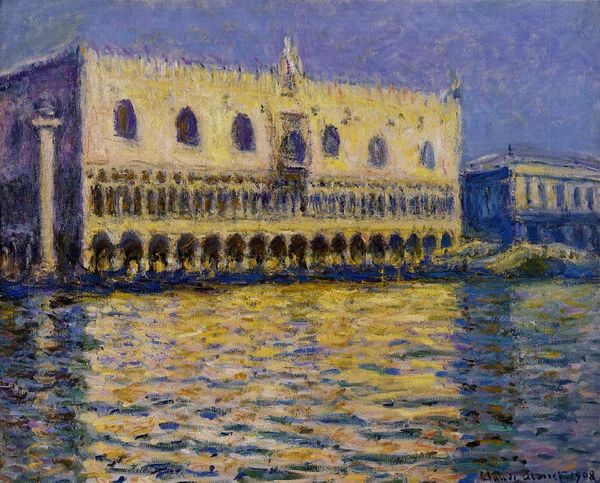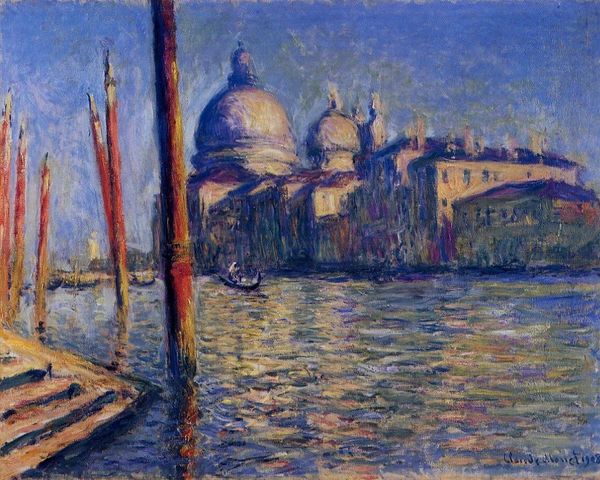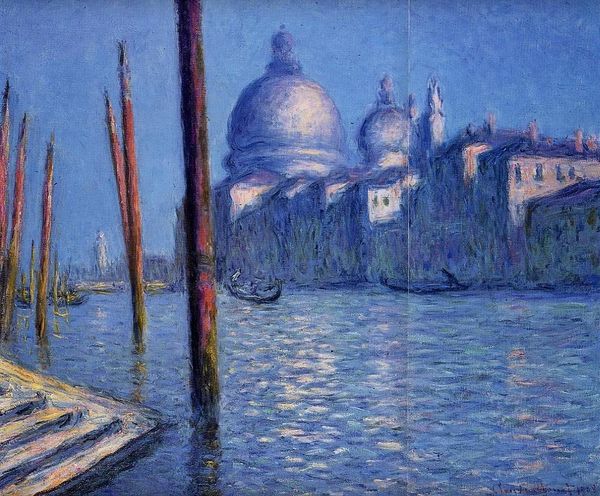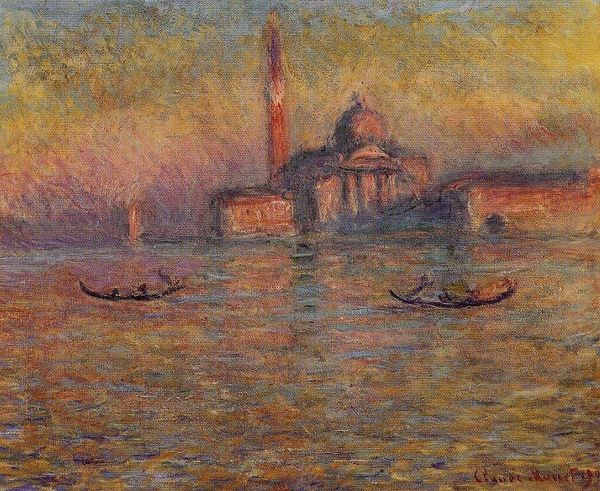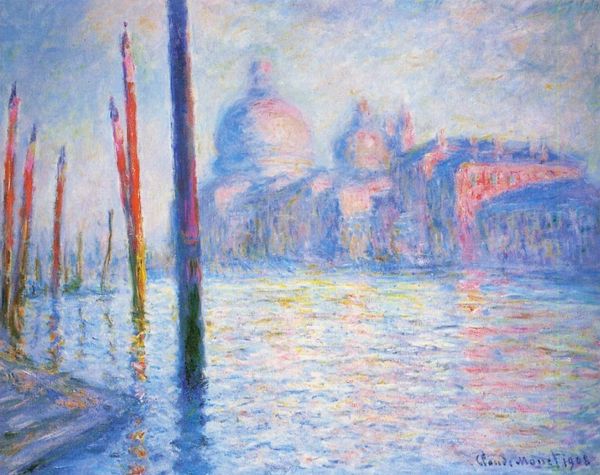
Copyright: Public domain
Claude Monet painted Palazzo da Mulla, using oil on canvas, in 1908. The canvas captures a Venetian scene, rendered through a shimmering veil of blues and purples, with touches of warm yellows and pinks which seem to dissolve the architectural forms into the light. This creates a dreamlike atmosphere. Monet's application of paint, with short, broken brushstrokes, isn't just representational; it embodies a shift in how we perceive reality. The buildings and gondolas aren’t simply depicted; they’re reconstructed through the act of seeing. The reflections in the water, treated with the same textural importance as the solid structures, challenge traditional notions of space and depth. The painting flattens the picture plane, bringing the background forward and blurring the distinction between surface and depth. This technique disrupts conventional perspective. The artist invites us to question the stability of what we see and to recognize that perception is always a process of interpretation rather than a passive reception. The painting becomes not just a depiction of Venice but a meditation on the nature of seeing itself.
Comments
No comments
Be the first to comment and join the conversation on the ultimate creative platform.
